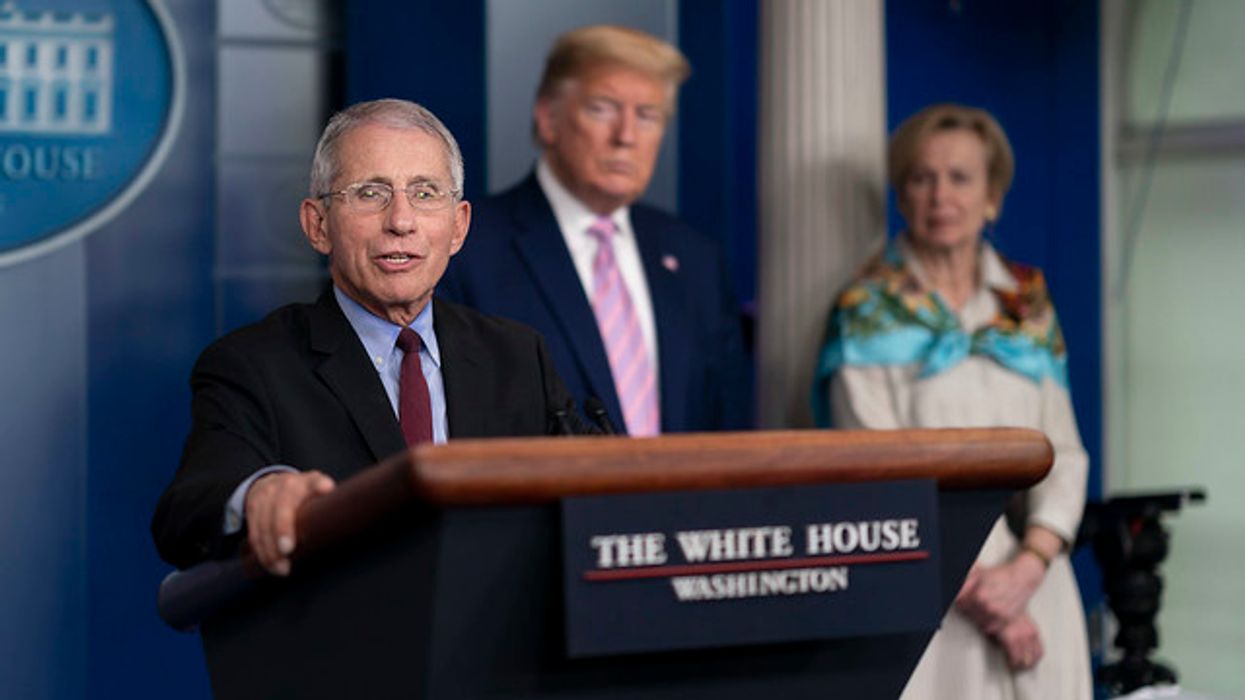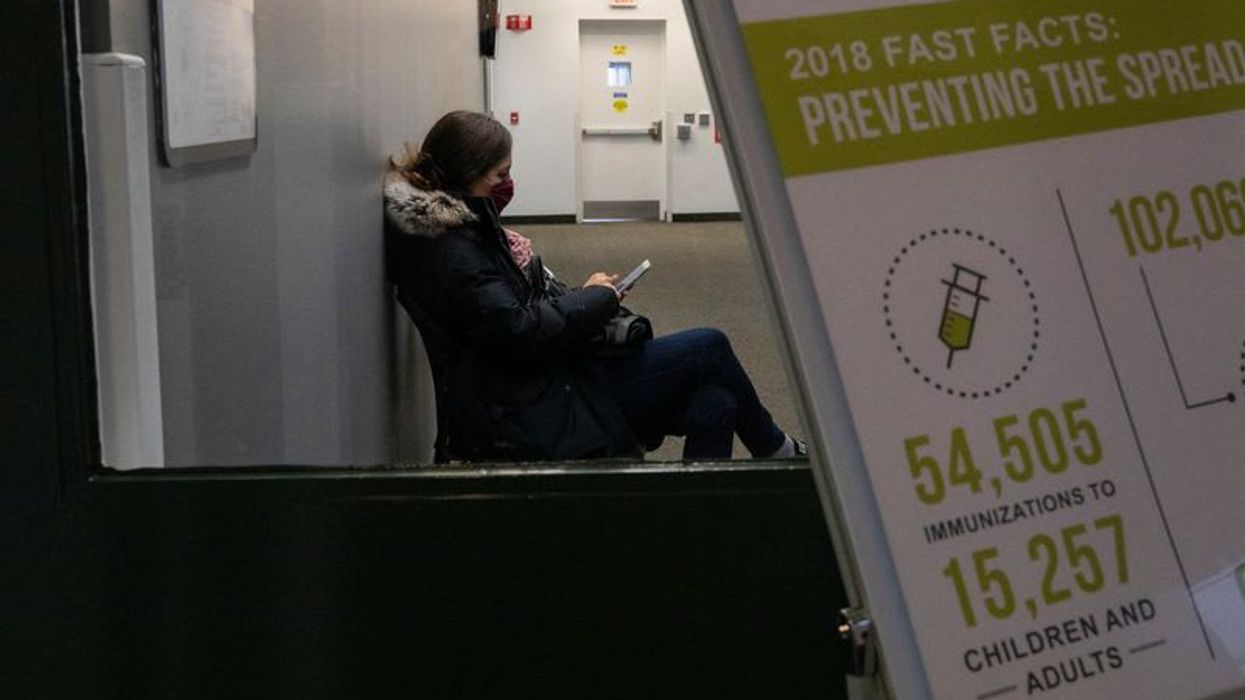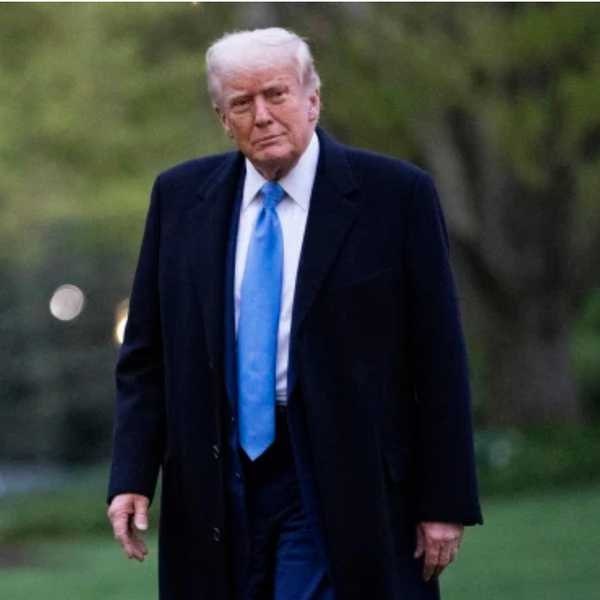Why Did Trump Silence Public Health Officials -- Again?
Within days of Donald Trump entering the Oval Office, he decreed by executive order that the United States will withdraw from the World Health Organization. He ordered the National Institutes of Health, the Centers for Disease Control and Prevention, the Food and Drug Administration and the Department of Health and Human Services to stop communicating with the public and other scientific organizations. And he withdrew the security protecting Dr. Anthony Fauci, the retired federal infectious disease expert.
Why would Trump issue these reckless orders, which appear ill-timed and foolish as the H5N1 virus — bird flu — begins to spread across the nation? Having already killed millions of chickens, this disease appears now to have killed at least one American male — and could soon mutate into a form transmitted from human to human.
To anyone who remembers how Trump mishandled the COVID-19 pandemic during his final year in office, his actions during the first week of his second term are deeply ominous. The U.S. death toll was the highest in the world, with over a million Americans struck down by the virus, despite the fact that we had access to vaccines before many other countries.
Despite Trump's laudable effort to encourage production of vaccines, he also became the principal obstacle to an effective response. Politics dictated Trump's actions from the very beginning, when he downplayed the pandemic threat and pretended that coronavirus would disappear before Easter. He discouraged testing, again because he wanted to minimize the threat. Listening to extremist advisers, he promoted quack cures, scoffed at effective health measures like masking, and undermined trust in public health authorities. His statements and actions resulted in countless unnecessary fatalities — ironically concentrated among his own Republican supporters.
Now Trump appears to be deflecting blame for his own failures onto international and federal agencies — and onto Fauci, whose undeserved status as a whipping boy for the far right has brought death threats against him and even his family.
It's not that WHO and the U.S. health agencies didn't make mistakes in coping with COVID-19 — a new form of illness that kept mutating and defying measures to bring it under control. Even the wise and experienced Fauci didn't get everything right. But the errors and missteps by Trump and his administration were far more consequential — and worse, were plainly motivated by political self-interest.
While the actual impact of Trump's executive orders has yet to be determined, their effects could severely undermine our defenses against the next pandemic, which seems likely to arrive sooner than expected. As a member of WHO, the United States benefits from the WHO global surveillance network that monitors perilous diseases such as influenza and Ebola — providing timely data, genetic material and other crucial information to our scientists. Removing U.S. funding and support will seriously undermine that system and endanger the entire world, including us.
Silencing or chilling communications from federal health agencies — and halting their exchanges with other scientists both here and abroad — poses a different risk. Prohibited from publishing scientific reports, issuing health advisories or updating their websites, the CDC and NIH won't be able to send out public alerts and recommended procedures, with potentially grave effects on our collective response to a pandemic.
These dictates from the new Trump regime are a spooky echo of the old Trump regime's bad behavior.
Recall that in late February 2020, a top CDC official publicly warned of an imminent pandemic and urged Americans to prepare for the shutdown of schools and workplaces. The president instantly threatened to fire her and forbade the CDC from delivering briefings on measures to combat the virus.
Instead, Trump took over the briefings and constantly misinformed the public. On masking, for instance, he said, "You don't have to do it. I'm choosing not to do it." Trump not only contracted the virus and became gravely ill — surviving only thanks to special care at Walter Reed Army Hospital — but made many others in his orbit sick as well. He nearly killed his former friend Chris Christie by exposing him to the virus (although typically Trump claims it was Christie who infected him).
We may soon relive that nightmare. Sadly, this president appears to have learned nothing from experience, except how to deflect responsibility. That won't protect any of us — not even Trump.
Joe Conason is founder and editor-in-chief of The National Memo. He is also editor-at-large of Type Investigations, a nonprofit investigative reporting organization formerly known as The Investigative Fund. His latest book is The Longest Con: How Grifters, Swindlers and Frauds Hijacked American Conservatism.
Reprinted with permission from Creators.















